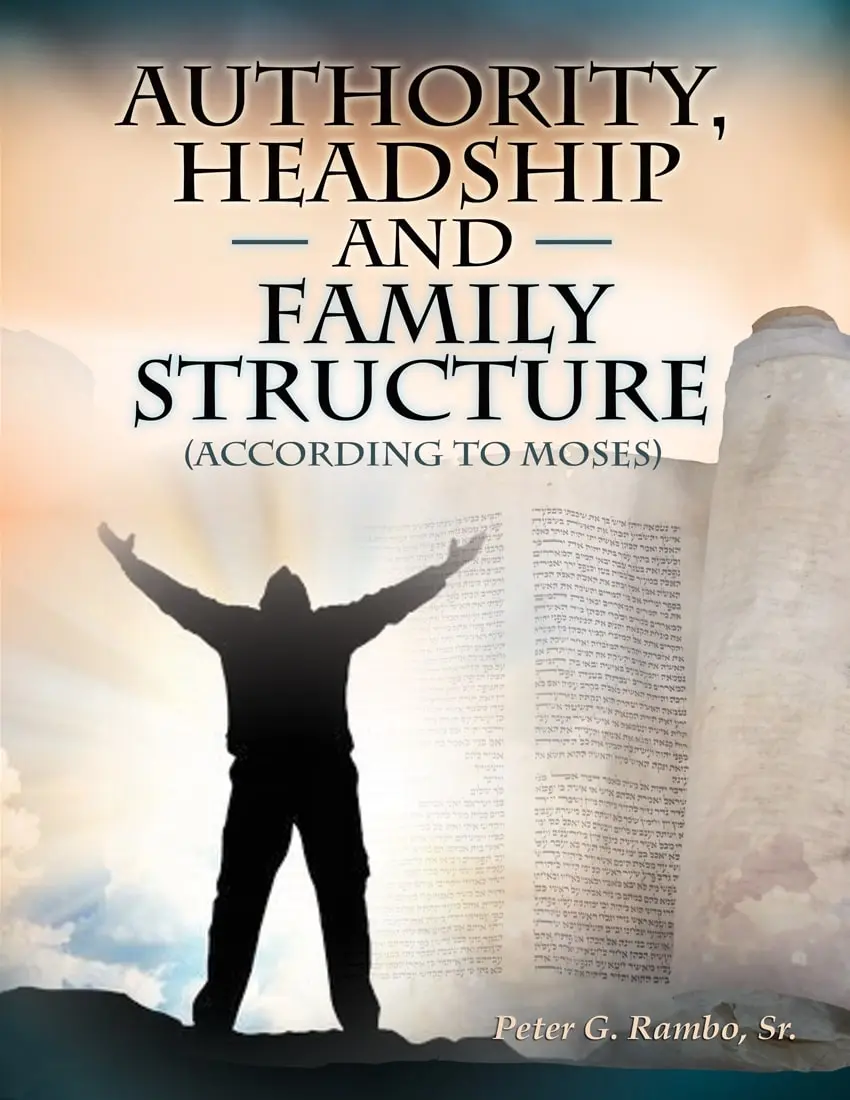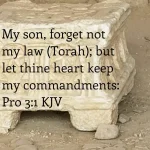anach·ro·nism noun \ə-ˈna-krə-ˌni-zəm\
: something (such as a word, an object, or an event) that is mistakenly placed in a time where it does not belong in a story, movie, etc.
: a person or a thing that seems to belong to the past and not to fit in the present
Full Definition of ANACHRONISM
1: an error in chronology; especially : a chronological misplacing of persons, events, objects, or customs in regard to each other2: a person or a thing that is chronologically out of place; especially : one from a former age that is incongruous in the present3: the state or condition of being chronologically out of place Merriam-Webster Dictionary
In one of the ongoing blog discussions that I participate in concerning the Torah and its applicability today in the lives of non-Jewish believers, a friend likes to point out ‘anachronisms,’ or, as he might phrase it, ‘an improper application of a commandment given in one time period by a person or group in another time period.’
Lately, one of the topics has been ‘One Law’ as explained by JK McKee in his recently reviewed book titled One Law for All, and a major point of discussion is whether the commandments concerning the ‘ger’ have any relevance today. In fact, my friend, James, says,
I give “props” to McKee for his obviously detailed research and dedication to the topic of “one law” in ancient Israel but it almost doesn’t matter. Those passages cannot anachronistically be applied either to the Gentiles entering the Jewish worship stream of “the Way” in the first century C.E. or to we Gentile Christians, Messianic Gentiles, or Gentile One Law devotees today.
Now, I would argue that those passages, as foundational passages from the Torah for all of Scripture, have profound application and implication today, but that is not the purpose of this post… It is the reference to ‘anachronism’ while he is leaning on the Rabbis for context and understanding! So, imagine my surprise when I started a new book yesterday, Fellow Heirs, and the author, Tim Hegg, begins to make the case that the proselyte system of joining the Jews did not begin development until after the Babylonian exile and did not really come into being as a formalized rite until around the Maccabean crisis more than 1000 years after the giving of the Torah! He says,
A recently discovered papyrus scrap (P. Duke Inv.727) dated to the 3rd Century BCE, however, offers proof that the word proselutos was still being used at this time in its common sense of “foreigner” without any reference to the Jewish conversion ritual. It was only later in the history of Israel, in post-exilic times, that the Greek word proselutos became defined by the religious ceremony conversion, and thus denoted a “convert,” a non-Jew who had undergone the ritual of conversion. (Fellow Heirs, pg. 5-6)
After Hegg explains a little more history and how proselyte ceased to simply mean ‘foreigner’ as a sociological term and transitioned into a technical term denoting a religious rite of conversion from being a Gentile to Judaism, he addresses the use of ‘proselyte in Jewish and Rabbinic literature. He quotes Leviticus 19:33-34 from the Stone Chumash,
When a proselyte dwells among you in your land, do not taunt him. The proselyte who dwells with you shall be like a native among you, and you shall love him like yourself, for you were aliens in the land of Egypt – I am Hashem your God. (The Stone Edition, Chumash pg.665)
Here is what is interesting: the Hebrew word ger appears three times in those two verses, but the translators have chosen to use two very different words to create a sense of distinction when the Hebrew makes no such differentiation. In fact, the Hebrew is intentional in equating the alien/sojourner with the resident alien status of Israel while they were in Egypt! Talk about anachronisms!! The highly charged term ‘proselyte,’ representing a religious ritual not developed for about 1000 years is used instead!!
I’ve written before about the lying pen of the scribes… I just didn’t apply it to Judaism’s translations.
Lest we think this was an oversight or error on the part of the translators, as I read part of this week’s Parsha from Deuteronomy, I found another nearly identical example,
He carries out the judgment of orphan and widow, and loves the proselyte to give him bread and garment. You shall love the proselyte for you were strangers in the land of Egypt. (ibid. 993)
Deu 10:18 עשׂה משׁפט יתום ואלמנה ואהב גר לתת לו לחם ושׂמלה׃
Deu 10:19 ואהבתם את־הגר כי־גרים הייתם בארץ מצרים׃
(e-sword)
For your convenience, I put every instance of ger in bold. Again, the intent of the Author of Deuteronomy, through the mouth/pen of Moshe, was to draw a parallel between the resident alien/sojourner in the land of Israel with the resident alien/sojourner status of Israel while they were in bondage in Egypt. By using the ritually charged word ‘proselyte’ in distinction to ‘strangers’ the translators of the Stone Chumash have decidedly tilted the understanding of the reader in favor of a religious ritual that was 1000 years removed from the giving of the Torah in the wilderness!
Wow!
In short, this gives some profound implications about how we are or are not to understand ger in the Torah! We most certainly cannot apply the definitions of ‘proselyte’ from Second Temple Judaism as it completely skews the original intent of the text. Further, when we apply the Torah to modern society and to non-Jews in particular who wish to walk with Israel and the God of Abraham, we cannot apply the idea or definition of ‘proselyte.’ No such encumbering system existed at the giving of the Torah!! Further, as I have said before, I think this clearly points to Paul, James and the other Apostles driving around parts of the religious ritual of Second Temple Judaism to return to the original intent of the Lawgiver.
So, to return to James’ quote cited above,
I give “props” to McKee for his obviously detailed research and dedication to the topic of “one law” in ancient Israel but it almost doesn’t matter. Those passages cannot anachronistically be applied either to the Gentiles entering the Jewish worship stream of “the Way” in the first century C.E. or to we Gentile Christians, Messianic Gentiles, or Gentile One Law devotees today.
I would have to respectfully disagree. McKee’s research is precisely what we need to peel back the layers of this onion and find the original intent of the Author in His unchanging, everlasting Word. Then, we can understand what it truly means to return to the ancient paths and walk in the ways that demonstrate our love for God.
You shall therefore love the Lord your God, and always keep His charge, His statutes, His ordinances, and His commandments.
Further, we can understand as the Apostles did, the alien/sojourner who joins Israel does so by simple faith in Messiah Yeshua and then begins to learn to walk according to the Commandments.





















































































































Pingback: What Brings Us Near to the Kingdom of God? | Morning Meditations
I’m going to let my review stand on its own merits rather than writing a rebuttal to your rebuttal, because if I do, then I’ll write a rebuttal and you’ll write a rebuttal, and neither of us will ever get away from our computers. 😉
The only thing I will say (and you probably noticed the “pingback” by now) has to do with the way you responded to me, which, as always, is rather refreshing.
LikeLiked by 2 people
Pete,
I have followed this debate kind of halfheartedly, thinking it would just go round and round, but with this short essay you overturned thousands of years of misunderstanding. As well as put first century Jewish writing, including the NT in proper context.
This now explains the anti conversion message of the NT.
I always found Matthew 23:15 rather startling now it makes sense.
“Woe to you, scribes and Pharisees, hypocrites, because you travel around on sea and land to make one proselyte; and when he becomes one, you make him twice as much a son of hell as yourselves.”
Well done!
James, you have been very gracious all along and i understand each of your points and concerns. My own story has circumstances that help me understand your perspective.
Thank you to both of you,
Barry
LikeLiked by 1 person
Thanks, Barry. I’m just love being able to discuss these difference in perspectives in such an open and friendly manner. This is how brothers and sisters in Messiah should speak with each other, even though we don’t always see eye-to-eye. Blessings.
LikeLiked by 3 people
Without this fundamental understanding, we miss the entire argument against the circumcision party and the opposition to gentiles to not fall for its fallacy. It brings a whole new understanding to Titus not being compelled in Galatians 2.
LikeLike
LikeLike
Pingback: Tales from the Bus. Wilfredo. | natsab
Thank you for pointing this out, Pete. Gives it some clarity. However, I’ve always realized this passage instructed Israel not to treat strangers/foreigners like slaves, as they were treated.
Here’s something that hit me while reading your blog: when they first arrived in Egypt, they were given land and prestige. This eventually turned into a trap for them and they became slaves, even though Joseph worked to ensure they were not entangled in the culture of Egypt by being given land set apart from the main stream.
LikeLike
Pingback: The ‘ger’ was expected to do what?? | natsab